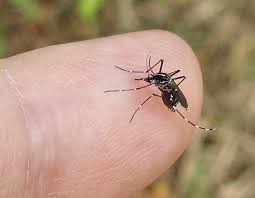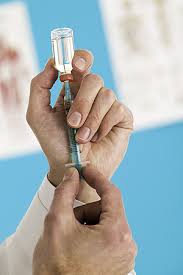Travel is supposed to be something you look forward to. It is an opportunity to explore and broaden horizons. It becomes taxing and worrisome when you know that you are about to enter a territory that is overwhelmed by a debilitating or deadly virus, such as Zika. Travel can be optional or necessary. If you do decide to leave the safety of your home and enter a Zika affected area, you need to protect yourself. The best way to do so is to prevent the virus from infecting your system.

What Everyone Knows about Zika
These are what we know about Zika:
- There is still no vaccine against Zika.
- Vector mosquitoes that carry Zika are the ones that spread chikungunya and dengue.
- The Zika spreading mosquito is a day- and night-biting mosquito.
- Local Zika transmission has already been reported in a couple of Miami territories.
- Zika can be transmitted through sex. Female and male condoms should be used.

Protecting Yourself If You Are Traveling and Pregnant
The CDC (Center for Disease Control) advises pregnant women not to travel to areas affected by the Zika virus. If they do have to travel, they should talk to their attending physician first and then plan carefully for the journey. If the pregnant woman’s sex partner has just travelled to a Zika affected area, she should protect herself during sex by using condoms.
What to Do If You are Pregnant and You Travel To or Live in a Zika Affected Area
Are you living in a Zika affected area? Has your partner traveled to a Zika territory? Then you need to protect yourself during sex, keep mosquitoes at bay, and talk to your doctor. If you have traveled to Zika affected areas, you should go ahead and talk to your doctor even if you do not manifest any symptoms. If you do have Zika symptoms within the first 2 weeks of your travel, you should have yourself tested for Zika. If you do not manifest symptoms within the first 2 weeks of your travel, you should still have yourself tested for Zika.
If you are pregnant and you live in a Zika infected territory, talk to your attending physician throughout your pregnancy. Because you are constantly surrounded by mosquitoes, you are at high risk of acquiring the Zika virus. Because of this, you are required to be tested for Zika after your initial prenatal visit and during your second trimester. If you do exhibit symptoms of Zika, you should be tested for Zika.

Checklist for Your Doctor Visit if You Are Pregnant
You can bring this checklist when you visit your physician:
- Where you traveled
- When you traveled to a Zika affected area
- The trimester your pregnancy was when you traveled to that area
- Did you manifest Zika symptoms during your entire trip or within 2 weeks of your return? (Red eyes, fever, rashes, and joint pain)
- Should you undergo the test for Zika? (In some asymptomatic cases, Zika testing is offered; Zika testing should be performed within 7 days when the symptoms manifested)
- What can you do to prevent Zika sexual transmission?
- Do you need a referral to a maternal-fetal medicine specialist?
- Do you need to have an ultrasound?
What You Should Do to Prevent Zika Even If You are Not Pregnant
The most effective way to avoid Zika is to avoid getting bit by the vector mosquitoes namely, Aedes aegypti and Aedes albopictus. Below are the things you need to do to do to keep away those mosquitoes:
- Choose the right repellent. The CDC advises everyone to use products with oil of lemon eucalyptus, DEET, IR 3535, or picaridin. They do not recommend repellents that are non-registered. These are the products that have peppermint oil, citronella oil, cedar oil, soybean oil, pure oil of lemon eucalyptus, and geranium oil.
- Apply the repellent correctly. You should always apply repellent after your sunscreen. Do not wear mosquito repellent under your clothes. It will just accumulate in the fabric and not evaporate. Also avoid applying it on wounds. Do not forget to apply repellent on your ankles and feet because the vector mosquitoes are attracted to feet. In applying repellent to children, put some repellent on your hands first before you apply it on the child’s skin. Do not put repellent on the child’s mouth and eyes. Use less repellent on the ears. Do not use repellents with more than 30% DEET. Do not use oil of lemon eucalyptus on children below 3 years old. Generally, do not use repellents on children below 2 months of age. Just protect them with mosquito netting.
- Wear protective clothing. Wear long sleeves and long pants if you want to ward off mosquitoes. You can also purchase clothes that are pre-treated with permethrin, which is a synthetic insecticide. Permethrin is known to be safe to use on children and women. Wear socks and full coverage shoes because the mosquitoes are attracted to feet. Do not wear yoga pants because mosquitoes can bite you through Spandex. Baggy clothes are better protection. You can protect your head with sunglasses and a hat.
 What Travelers Should Do to Protect Themselves from Zika
What Travelers Should Do to Protect Themselves from Zika
Below are important pointers in protecting yourself against the Zika virus:
- Men and woman can transmit the Zika virus readily through intercourse (includes oral sex), even If they do not manifest symptoms. Make sure you use dental dams or condoms before you engage in sexual activity.
- If you are planning to become pregnant or are already pregnant, please avoid going to areas affected by Zika. Once you manifest Zika symptoms, consult your doctor about undergoing Zika testing. You may be advised to delay your pregnancy.
- Apply your sunscreen first before you apply your repellent.
- Do not forget to pack more than enough repellent. Make sure that you bring a repellent with at least 30 or 40 percent DEET.
- Be sure that you close windows and doors or use screens in the place you stay. When you sleep, use mosquito netting.
- Treat your clothes with permethrin.
- Avoid staying in areas with standing water, which are breeding places for mosquitoes.
- Always wear long sleeved shirts and long pants to cover your skin.
- Avoid mosquito bites all day long because Aedes species of mosquitoes are day- and night-biting mosquitoes.
- When you return home, still protect yourself from mosquito bites so that you can help prevent the spread of the Zika virus.
Questions Asked about Zika Frequently
Below are common questions asked by travelers and non-travelers:
- How is it if you are infected by Zika? Those who are infected by Zika experience mild symptoms which include red eyes, fever, joint pain, and rashes. If you are pregnant, your unborn child will experience birth defects such as microcephaly. If you become infected with Zika, you will most likely be immune from any Zika infections in the future.
- Is there a ready vaccine against Zika? There is no vaccine for Zika as of now, but the medical community is trying hard to eradicate the disease. The National Institutes of Health said that they will start their first human clinical trial of their NIAID Zika Virus Investigational DNA vaccine. The vaccine may take years to develop.

When You Travel and You’re at Very Low Risk of Transmission
If you travel at a very low risk Zika affected country or territory, you do not need to worry about additional measures in preventing the infection. The travelers who develop the Zika illness as they travel should see a doctor at their destination point. If they are diagnosed with Zika, they should do the following:
- A non-pregnant woman should always use contraception such as condoms when she travels. For 8 weeks after her travel, she should avoid having unprotected sex or getting pregnant. This is to prevent possible side effects or transmission.
- A pregnant woman should use condoms for about 8 weeks to prevent Zika transmission. She should also talk to her doctor for early obstetric assessment when she returns.
- Men whose partners are pregnant should always use condoms during sexual intercourse.
- Men should always use condoms when they travel, even half a year after they travel to avoid the transmission of Zika. They should use condoms from the beginning to the end of the sexual act.
When the traveler returns:
- The traveler should seek immediate medical attention in case he or she feels feverish during travel or upon return. Take note that there are other health hazards such as malaria or dengue in territories or countries affected by Zika. These other ailments can also be very serious if you are with child. The traveler should still follow proper contraception, particularly the use of condoms.
- Travelers who return from Zika affected countries cannot be blood donors for an entire month after they return, if they do not have symptoms. They cannot donate blood for half a year after their return if they do exhibit symptoms.
- The SNBTS (Scottish National Blood Transfusion Service) have a strict policy for donors not to donate any blood if they visited countries affected by Zika. The same policy applies for sexual partners of anyone who has been diagnosed with Zika infection, six months before the actual sexual intercourse. This is a precaution to protect the available blood supply.

Additional Reminders for Travelers
Before travel:
- Make sure you have updated vaccinations against DPT, influenza, and MMR. You should also confirm if your Hepatitis B vaccine is still active.
- Undergo an evaluation of your travel vaccinations to lower the risk of acquiring other diseases such as yellow fever, Hepatitis A, typhoid fever and Japanese encephalitis.
- Consider using antibiotics (on stand-by) for a bout of Traveler’s Diarrhea.
- Should be prescribed with anti-malarial pills.
- Should purchase permethrin treated clothes.
- Should use picaridin or DEET repellents
- Should practice protected sex in Zika affected areas
- Review the reminders for preventing mosquito bites, such as using mosquito nets and avoiding stagnant water.
As you travel:
Avoid the following:
- Being barefooted
- Using perfume
- Wearing clothes that are dark colored
- Wearing short sleeves and shorts
- Drinking any kind of beer
- Using fragrant shampoos and soaps (these attract mosquitoes)
- Wearing clothes with floral prints (flowers are food sources for mosquitoes)
Do the following:
- Always wash your clothes to avoid odor from accumulating.
- Use only unscented antibacterial soaps to lessen your skin’s bacteria, which attract the Aedes species of mosquito.
- Shower a few times daily to prevent body odor from building up on your skin.
- Wash your groin, feet, and arm pits, which are attractive parts to the Aedes species of mosquitoes.
- Use AC, screens, and ceiling fans.
- Use mosquito netting, during the day and at night.
- Apply repellents (oil of lemon eucalyptus, picaridin, or DEET) carefully. Choose only those that are approved.
- Wear light colored long pants and long sleeved shirts
- Change your shoe insoles and wear clean socks
When you return home:
- If you are pregnant, you should talk to your doctor.
- If your partner travelled to a Zika affected area, he or she should see a doctor.
- Avoid mosquito bites for about 21 days to prevent local mosquitoes from being infected.
- Always use condoms during sexual intercourse.
*** Remember that the Zika virus or the ZIKV is transmitted by Aedes mosquitoes. Aedes aegypti is a day-biting mosquito. Specialists discovered that the Zika virus has been found in semen, two months after the Zika virus has struck. It has also been found in the female’s genital tract. If you are pregnant, it is best to reconsider your travel to that Zika affected area. The life of your unborn child is more important than that travel experience.

For the safety of all travelers, governments should try their best to eradicate mosquitoes and their favored breeding grounds. If the mosquito populations are eradicated, there is a reduced possibility of Zika transmission. As a traveler, always be mindful of your surroundings. If you see a possible breeding ground for mosquitoes in your living area, talk to the person in charge of your lodging. It is always helpful to call the attention of the people who should be responsible in preventing mosquitoes from taking over.